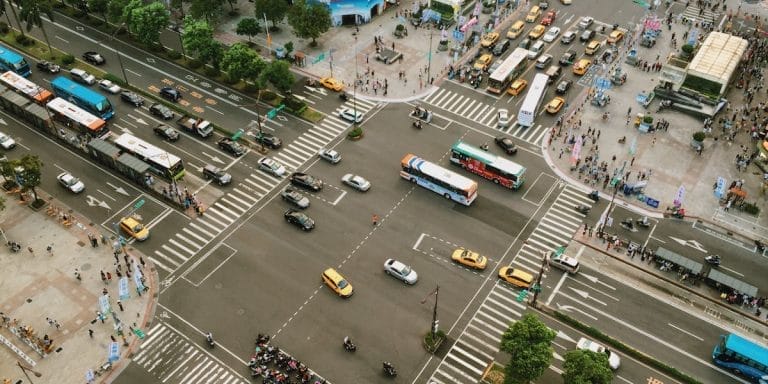Immerse Yourself in the Captivating Culture of Asia
As you embark on your journey through the mesmerizing landscapes and bustling cities of Asia, there is one aspect that promises to leave an indelible mark on your soul – the rich tapestry of local culture. From the enchanting traditions of Japan to the vibrant street markets of Thailand, Asia offers an unparalleled opportunity to delve into the heart and soul of its diverse nations. So, pack your bags, open your mind, and get ready to embark on a transformative adventure that will connect you with the true essence of Asia.
But what makes experiencing local culture in Asia so captivating? It’s the chance to witness centuries-old traditions come alive before your eyes, to savor the tantalizing flavors of authentic cuisine, and to engage with warm-hearted locals who are eager to share their stories and traditions. Whether you find yourself wandering through the ancient temples of Angkor Wat, participating in a traditional tea ceremony in China, or joining a vibrant festival in India, each experience will be a kaleidoscope of colors, sounds, and emotions that will transport you to a different world.
Moreover, immersing yourself in local culture allows you to gain a deeper understanding of the history, values, and beliefs that shape each country. It’s a chance to step out of your comfort zone and embrace the unfamiliar, to challenge your preconceptions, and to broaden your perspective on life. Whether you’re exploring the intricate art of batik in Indonesia or learning the graceful movements of a Thai dance, every interaction will be a stepping stone towards a more profound connection with the people and places you encounter.
So, if you’re ready to embark on a journey that transcends the typical tourist experience, join us as we delve into the fascinating realm of experiencing local culture in Asia. Through this research, we will uncover the hidden gems, provide practical tips, and inspire you to embrace the beauty and diversity that awaits you in this captivating continent.

Experiencing local culture in English language
When traveling to a foreign country, one of the best ways to truly immerse yourself in the local culture is by engaging with the locals and experiencing their way of life. This can be particularly challenging if you don’t speak the local language, but fear not, English is widely spoken in many parts of the world. English has become a global language, and it is often used as a lingua franca for communication between people from different countries.
One of the first steps to experiencing local culture in English is by interacting with the locals. Engaging in conversations with locals can provide valuable insights into their customs, traditions, and way of life. It is important to approach these interactions with an open mind and a willingness to learn. Locals are often eager to share their culture and language with visitors, and by showing genuine interest, you can create meaningful connections and gain a deeper understanding of the local culture.
Another way to experience local culture in English is by participating in cultural activities and events. Many destinations offer cultural festivals, performances, and workshops that cater to English-speaking visitors. These events provide a unique opportunity to witness traditional dances, music, art, and cuisine. Attending these activities not only allows you to appreciate the local culture but also provides a chance to interact with locals who are passionate about preserving their heritage.
Exploring local markets and shops is also a great way to experience the local culture in English. Markets are often bustling with activity and offer a glimpse into the daily lives of locals. Engaging in conversations with vendors, trying local delicacies, and purchasing traditional handicrafts can provide a rich cultural experience. Many vendors in popular tourist areas are accustomed to dealing with English-speaking visitors and can communicate effectively in English.
Lastly, embracing the local language, even if you only know a few basic phrases, can go a long way in experiencing the local culture. Learning simple greetings, thank you, and please in the local language shows respect and appreciation for the local culture. Locals will often respond positively to your efforts and may be more willing to share their culture and traditions with you.
Overall, while it may seem challenging to experience local culture in a foreign country when you don’t speak the language, English can be a valuable tool to connect with locals and immerse yourself in their way of life. By engaging with the locals, participating in cultural activities, exploring local markets, and embracing the local language, you can create meaningful experiences and gain a deeper appreciation for the local culture.

One innovative approach to experiencing local culture in the English language is through homestays. Instead of staying in a hotel, consider staying with a local family who can provide a more authentic cultural experience. Living with locals allows you to observe their daily routines, try traditional home-cooked meals, and engage in conversations to improve your English skills. It’s a unique opportunity to immerse yourself in the local culture and build meaningful connections with locals.
Another perspective is to join language exchange programs or conversation clubs. These programs bring together locals and English learners who are interested in language and cultural exchange. By participating in these activities, you can practice your English skills while also learning about the local culture from native speakers. It’s a fun and interactive way to experience the local culture while improving your language abilities.
For a more hands-on approach, consider volunteering in local community projects. Many organizations offer volunteer opportunities where you can contribute to the community while learning about the local culture. Whether it’s teaching English to local children, participating in environmental conservation projects, or assisting in community development initiatives, volunteering allows you to interact with locals and gain a deeper understanding of their way of life.
Additionally, attending local cultural workshops or classes can provide a unique perspective on experiencing the local culture in English. These workshops often focus on traditional arts, crafts, or activities specific to the region. By participating in these classes, you can learn new skills, interact with local instructors, and gain insights into the cultural significance behind these practices.
Lastly, exploring off-the-beaten-path destinations can offer a different angle to experiencing local culture in English. While popular tourist areas may have more English-speaking services, venturing into lesser-known areas can provide a more authentic and immersive experience. Locals in these areas may have limited English skills, but their genuine interactions and willingness to share their culture can create unforgettable experiences.
Remember, experiencing local culture in English is not limited to just language proficiency. It’s about embracing curiosity, respect, and open-mindedness towards the local customs and traditions. By approaching these experiences with a genuine desire to learn and connect, you can create meaningful memories and gain a deeper appreciation for the local culture.

By immersing yourself in the local culture, you open yourself up to new perspectives and ways of life. Engaging with the community and actively seeking to understand their traditions and customs allows for a more enriching experience. Whether it’s participating in local festivals or trying traditional cuisine, these interactions can foster a sense of connection and understanding. It’s through these genuine connections that you can truly appreciate the beauty and diversity of different cultures. Additionally, by approaching your experiences with a desire to learn, you can gain valuable knowledge and insights that can broaden your worldview. Each encounter becomes an opportunity for personal growth and a chance to expand your horizons. So, whether you’re exploring a bustling city or a remote village, embracing the local culture can lead to unforgettable memories and a greater appreciation for the world around you.

Case Study 1: Immersing in the Traditional Festivals of Japan
When visiting Japan, I had the opportunity to experience the vibrant local culture by participating in traditional festivals. One such festival was the famous Gion Matsuri in Kyoto, where the streets were adorned with colorful decorations and locals dressed in traditional attire. I joined the festive parade, carrying a portable shrine and chanting along with the locals. This immersive experience allowed me to understand the significance of this age-old tradition and appreciate the deep-rooted cultural values of Japan.
Case Study 2: Exploring the Indigenous Heritage in Australia
During my trip to Australia, I ventured into the heart of the country to learn about the rich indigenous culture. I visited Uluru, a sacred site for the Aboriginal people, and had the privilege of joining a guided tour led by a local elder. He shared stories about the history, spirituality, and connection to the land, while we walked around the majestic rock formation. By listening to their ancient tales and witnessing their traditional ceremonies, I gained a profound understanding of the indigenous culture and the importance of preserving it for future generations.
Case Study 3: Discovering the Culinary Delights of Italy
While in Italy, I decided to go beyond the typical tourist attractions and delve into the local culinary scene. I took a cooking class in a small Tuscan village, where I learned to make traditional dishes like homemade pasta and tiramisu from a local chef. Not only did I get to savor the authentic flavors of Italian cuisine, but I also gained insights into the cultural significance of food in Italy. Through this experience, I realized that food is not just nourishment but a way of preserving heritage and connecting with others.
Case Study 4: Immersing in the Vibrant Music Scene of Brazil
During my visit to Brazil, I had the opportunity to immerse myself in the local music scene. I attended a live samba performance in a lively neighborhood of Rio de Janeiro. The rhythmic beats, energetic dancers, and passionate singers created an electrifying atmosphere that was contagious. By embracing the music and dancing along with the locals, I not only had a memorable night but also gained a deeper appreciation for the cultural significance of samba in Brazil.
Understanding the cases above showcases the diverse ways in which experiencing local culture can provide unforgettable memories and a deeper appreciation for the world around us.
In the future, advancements in technology will play a significant role in enhancing the experience of experiencing local culture. Virtual reality (VR) and augmented reality (AR) technologies will allow travelers to immerse themselves in the local culture even before they arrive at their destination. Through VR, travelers can take virtual tours of historical sites, museums, and cultural landmarks, providing them with a deeper understanding and appreciation of the local culture.
Furthermore, AR applications can provide real-time translations, allowing travelers to communicate more effectively with locals and understand the nuances of the local language. This will enable travelers to engage more authentically with the local culture, breaking down language barriers and fostering meaningful connections.
As awareness of the environmental impact of tourism grows, there will be a shift towards sustainable tourism practices. Travelers will seek out experiences that allow them to engage with the local culture while minimizing their ecological footprint. This will lead to the emergence of eco-friendly accommodations, locally sourced and organic food options, and community-based tourism initiatives.
Travelers will also prioritize supporting local artisans, craftsmen, and cultural events, contributing to the preservation and promotion of local culture. Websites and travel apps will provide information on sustainable tourism options, helping travelers make conscious choices that positively impact the local communities they visit.
In the future, travelers will seek more personalized cultural experiences that cater to their specific interests and preferences. Travel agencies and online platforms will offer tailored itineraries and experiences, allowing travelers to immerse themselves in the aspects of local culture that resonate with them the most.
For example, travelers interested in culinary experiences can participate in cooking classes, food tours, and farm-to-table experiences, while art enthusiasts can engage in workshops with local artists or visit galleries and studios. The availability of personalized cultural experiences will enrich travelers’ understanding and appreciation of the local culture, making their trips more memorable and meaningful.
With the increasing reliance on online platforms for travel planning, there will be a greater emphasis on providing comprehensive cultural information to travelers. Travel websites and apps will offer detailed guides on local customs, traditions, etiquette, and cultural practices, ensuring that travelers are well-prepared and respectful when engaging with the local culture.
These platforms will also provide recommendations for cultural events, festivals, and performances, allowing travelers to immerse themselves in the vibrant local scene. Additionally, interactive maps and audio guides will provide travelers with historical and cultural context as they explore different destinations, enhancing their overall cultural experience.
In the future, travelers will increasingly prioritize authentic cultural experiences over commercialized and tourist-centric activities. They will seek out opportunities to interact with locals, participate in traditional rituals, and gain insights into the everyday lives of the local community.
Travelers will be drawn to destinations that have preserved their cultural heritage and offer genuine experiences, rather than those that have succumbed to mass tourism and lost their authenticity. As a result, there will be a growing demand for off-the-beaten-path destinations and community-based tourism initiatives that provide travelers with a deeper and more meaningful connection to the local culture.

Advancements in technology, such as virtual reality (VR) and augmented reality (AR), will enhance the experience of experiencing local culture. VR allows travelers to take virtual tours of historical sites and cultural landmarks, providing a deeper understanding and appreciation of the local culture. AR applications can provide real-time translations, breaking down language barriers and fostering meaningful connections with locals.
Sustainable tourism practices will become more prevalent as travelers seek to minimize their ecological footprint. This will lead to the emergence of eco-friendly accommodations, locally sourced and organic food options, and community-based tourism initiatives. Supporting local artisans, craftsmen, and cultural events will also be prioritized, contributing to the preservation and promotion of local culture.
Personalized cultural experiences will cater to travelers’ specific interests and preferences. Tailored itineraries and experiences will allow travelers to immerse themselves in aspects of local culture that resonate with them. Culinary experiences, art workshops, and visits to galleries and studios will be available for travelers to engage in.
Comprehensive cultural information will be provided through travel websites and apps, offering guides on local customs, traditions, etiquette, and cultural practices. Recommendations for cultural events and interactive maps with historical and cultural context will enhance travelers’ overall cultural experience.
Travelers will prioritize authentic cultural experiences over commercialized activities. They will seek opportunities to interact with locals, participate in traditional rituals, and gain insights into the everyday lives of the local community. Off-the-beaten-path destinations and community-based tourism initiatives will be in high demand, providing a deeper and more meaningful connection to the local culture.








